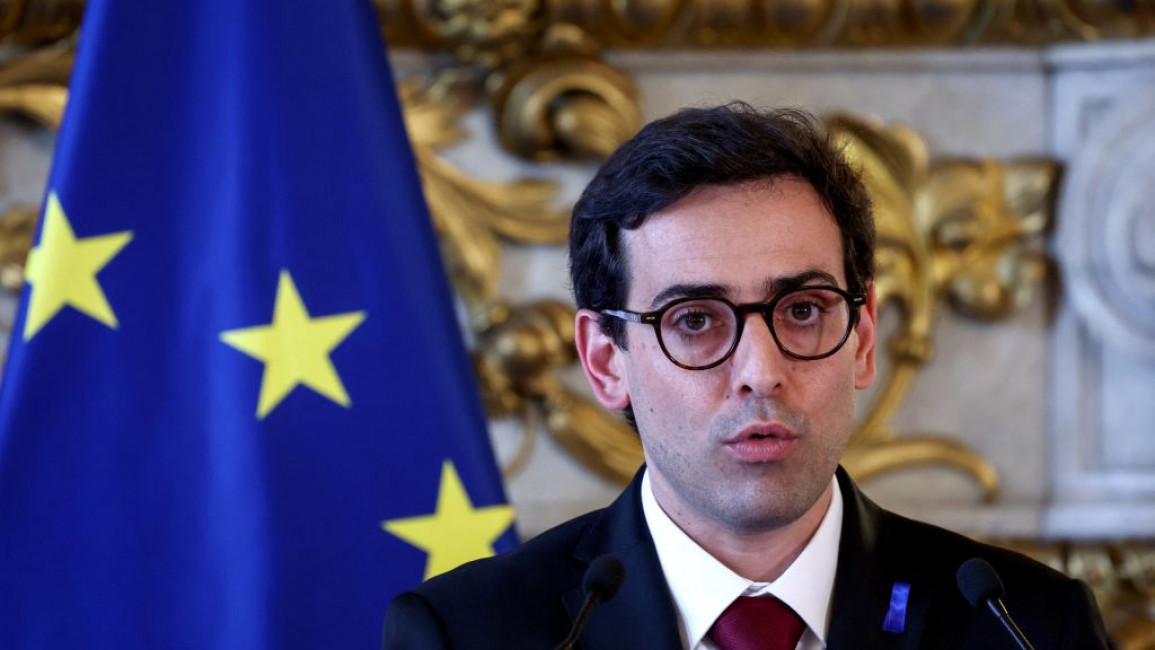France FM suggests sanctions could be imposed on Israel to open Gaza crossings
France's foreign minister said on Tuesday that pressure, and possibly sanctions, must be imposed on Israel to get humanitarian aid into Gaza.
Stephanie Séjourné said there was an urgent need to open borders into Gaza to humanitarian aid with famine looming in the enclave and indicated that pressure on Israel is vital to achieve this.
Israel is waging a brutal war on the Palestinian territory, which has killed more than 33,200 people, and instigated a crippling siege that has deprived millions of Palestinians of basics such as food and medicine.
"There must be levers of influence and there are multiple levers, going up to sanctions to let humanitarian aid cross checkpoints," Séjourné told RFI radio and France 24 television on Tuesday.
"France was one of the first countries to propose European Union sanctions on Israeli settlers who are committing acts of violence in the West Bank."
An Israeli attack last week killed seven humanitarian workers from World Central Kitchen, leading to international uproar and rising pressure on Israel with aid coming in via sea cut.
Following the killings, US President Joe Biden called for Israel to prevent harm to civilians and aid workers in a call with Israel's Prime Minister Benjamin Netanyahu.
Israel soon approved the temporary use of the closed Erez crossing between Israel and northern Gaza to deliver aid.
US State Department spokesperson Matthew Miller said on Monday that the crossing "could be operational this week".
Currently, aid can only enter by land into southern Gaza, exacerbating the starvation and suffering in the north of the strip.
French President Emmanuel Macron, Jordan's King Abdullah II, and Egyptian leader Abdel Fattah Al-Sisi jointly called on Monday for an immediate ceasefire in Gaza.
"The war in Gaza and the catastrophic humanitarian suffering it is causing must end now," they wrote in an opinion piece published by US newspaper The Washington Post.
"Violence, terror, and war cannot bring peace to the Middle East. The two-state solution will."
The two-state solution refers to the establishment of an independent Palestinian state in the West Bank and Gaza alongside Israel.
Séjourné said on Tuesday that he believes recognising Palestine as a state is "deeply tied" to the "peace process".
Western states typically say that they will only recognise a Palestinian state after the successful conclusion of a long-stalled Israeli-Palestinian peace process.
The current Israeli government openly opposes the establishment of a Palestinian state and Israel refuses to end its occupation of the West Bank and East Jerusalem over three decades after the signing of the 1993 Oslo Accords, which were supposed to pave the way for an end to the occupation and Palestinian statehood.
The International Court of Justice in January said Israel was plausibly violating the UN's Genocide Convention in Gaza.
Reuters contributed to this report.



